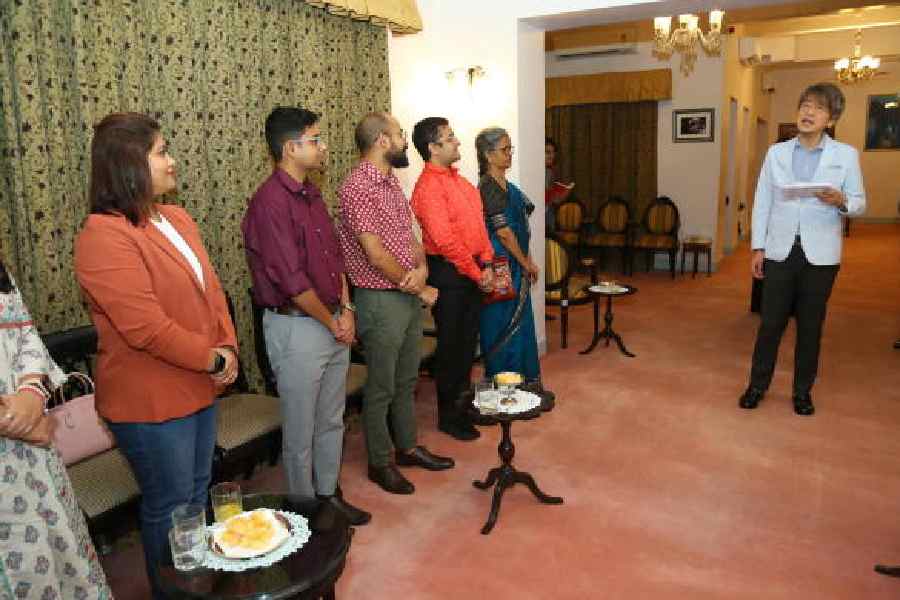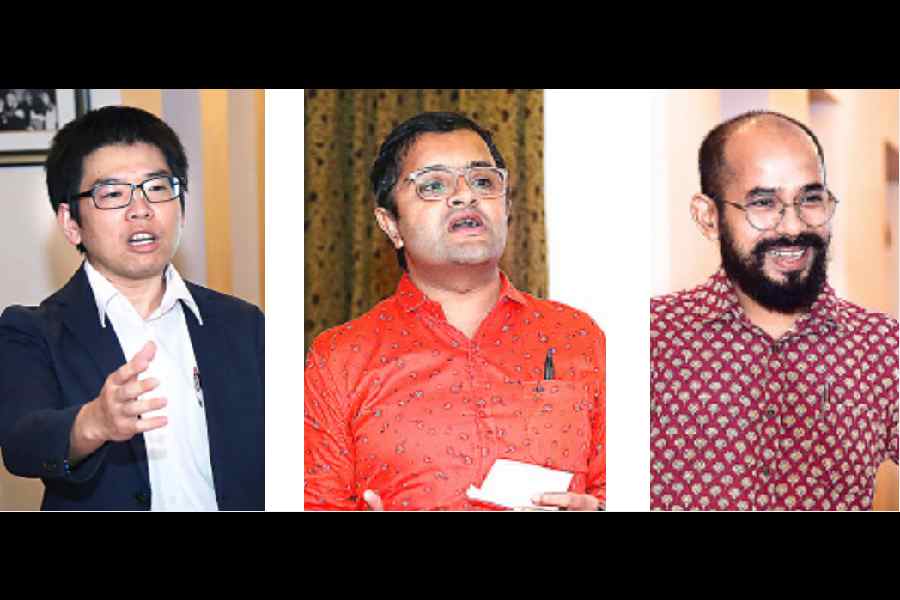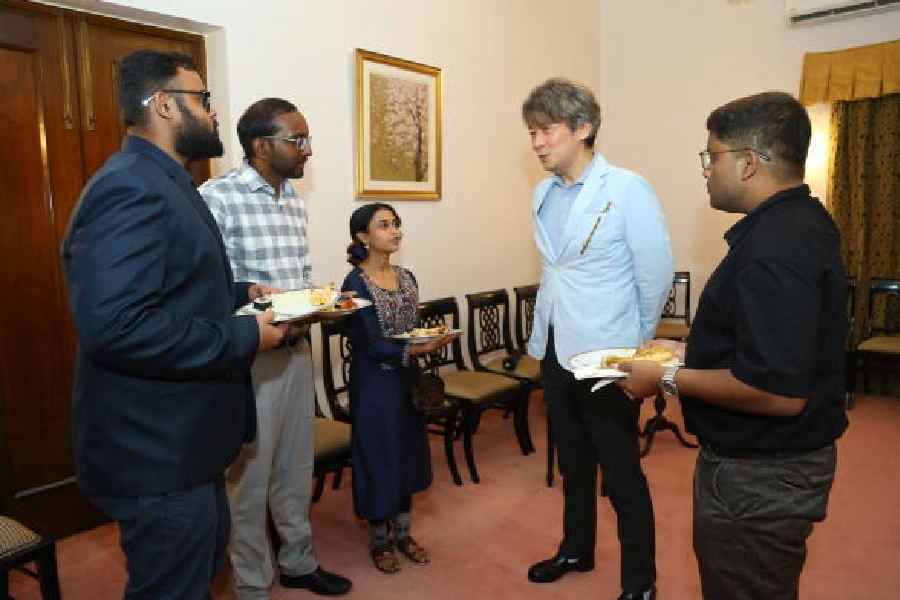A dinner invitation at the Japan consul general’s residence gave outbound students from eastern India a chance to find out more about the land of the rising sun from consulate officials and alumni members.
A pre-departure orientation had the vice-consul Akira Maeda briefing the students about characteristics of Japanese society. “Japanese people give a lot of importance to harmony. They do not like arguments. There is an expression called ‘read the air’. Honne is what someone really thinks while tatemae is what one is expected to do in the situation one is in. So do not miss the expression on their faces or the way they are talking to guess what they are actually thinking,” he said.

Consul general Koichi Nakagawa gets acquainted with the alumni of higher education institutions in Japan
He also demonstrated the various kinds of bows. “A bow can express greeting, respect or an apology depending on the duration. Men’s hands would be at the sides while women’s would be in front,” he added.
Tips were also shared on public conduct. “The Japanese are maniacal about cleanliness. You would be expected to wipe off the water in a basin after use. And if you are in public transport, talking on the phone is considered bad manners. That is why our trains and buses are very quiet.”
There is also etiquette involved in payment. “Money is hardly ever handed directly. There is usually a tray kept to make payment. If there is no tray and one has to hand over the cash, it is done with both hands and with a bow.”
Consul general Koichi Nakagawa also addressed the gathering. “More and more Indian students are choosing Japan as their study destination. We also wish to know the ideas of those who have experience of studying in Japan in order to foster future batches going from here,” he said, referring to the inclusion of alumni who have studied in Japanese educational institutions in the evening’s guest list.
Two such alumni shared their experiences. Karan Vora had travelled to Japan as part of the JU SYLFF (Ryoichi Sasakawa Young Leaders Fellowship Fund) programme in 2015-16. He spoke of the “innate sense of discipline” in Japanese people. “I gave English lessons to small children. It is taught from that age that discipline was not for individual good but for the good of the entire society,” he said. He recalled taking a train from Hiroshima to Osaka, for which he had to take a transfer at Himeji. There was just a minute’s gap between the arrival of the two trains at the station. When the train I was on reached, the other train was already waiting on the opposite platform, such is their punctuality,” he said, still full of awe.
He also spoke of senior citizens attending classes. “They bring a sense of liveliness to the campus,” he remarked.

Vice-consul Akira Maeda addresses students at the pre-departure orientation, Karan Vora, an alumnus, shares his memories of studying in Japan, Sambit Dattachaudhuri recounts his experiences in Japan
Sambit Dattachaudhuri had gone to Osaka in 2012-13 to cultivate his “extreme interest in Japanese films”. The photographer, cinematographer and chef, who wrote his thesis on Godzilla and its influence on world cinema, recalled being gifted a camera. “Most people there are extremely kind,” he said.
The outbound students, for whose benefit the session was being conducted, had different dates for heading out. “I loved the prescriptions offered this evening. I was worried about the food in Japan, but not any more after speaking to alumni members,” said Arijit Das, a PhD scholar headed for Hamamatsu University in Shizuoka.
